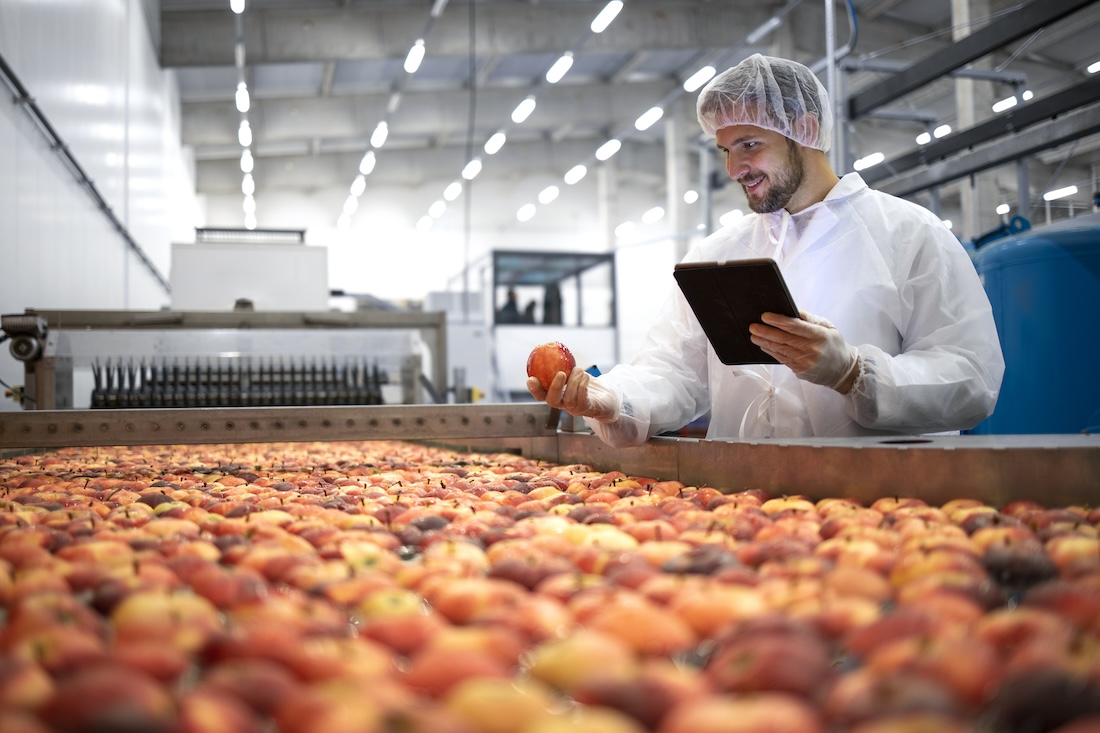In the food production sector, choosing the right food-grade lubricant is not just a technical matter: it is a strategic decision that affects safety, regulatory compliance and plant efficiency. Choosing the wrong product or supplier can lead to production downtime, contamination risks and penalties during food safety audits.

Find out what to ask your supplier
In this article, we guide you through 6 key questions to ask your supplier in order to select the most suitable food-grade lubricant for your production needs. This content is designed for technical managers, maintenance engineers and operators in the sector who want to avoid mistakes and focus on quality.
1. Are food-grade lubricants compliant with regulations?
Not all lubricants are suitable for use in the food industry. A certified food-grade lubricant must meet specific requirements. The certifications to request from your supplier include:
- NSF H1: for incidental use in areas where food is handled.
- ISO 21469: hygienic process certification.
- Kosher and Halal.
- Declarations of absence of GMOs and allergens.
It is essential to request official and up-to-date documentation, as this is the only way to protect your production during inspections and audits.
2. Do food-grade lubricants improve production efficiency?
A food-grade lubricant is not only a protective fluid, but also optimises energy consumption and improves the performance of food processing machinery. Quality products, such as those in the Setral range, offer:
- Less wear on components.
- Longer lubrication cycles.
- High performance even at extreme temperatures.
A good supplier should help you choose the food-grade lubricant that optimises your plant, reducing machine downtime.
3. Does the lubricant supplier also offer technical support?
A true partner does not just sell you a food-grade lubricant, but supports you in its overall management. One thing to check is therefore that the supplier offers:
- Personalised technical advice.
- Support in training operators.
- Assistance in warehouse management
With a comprehensive service, you can reduce the number of lubricants used, avoid overlaps and increase maintenance efficiency.
4. Is there concrete evidence of the products’ effectiveness?
Changing lubricants is a decision that must be made carefully. Your supplier should offer you:
- Laboratory tests.
- Comparative analyses with competitors.
- Real-life case studies.
Md Poland, for example, uses concrete data to show how Setral food-grade lubricants can reduce energy consumption, increase component life and improve productivity.
5. How can they help me simplify my warehouse?
Many companies stock dozens of different lubricants, creating unnecessary complexity and costs. An experienced supplier can help you:
- Reduce product variety.
- Avoid cross-contamination.
- Simplify ordering and storage.
This approach leads to less waste and greater traceability, two crucial elements in the food industry.
6. Is the logistics network reliable?
Finally, it is a good idea to ask whether your supplier can guarantee continuity of delivery. For food-grade lubricants, timely availability and the presence of the documentation required for each destination are essential.
Thanks to its partnership with Setral, MD Poland ensures a solid distribution network, fast deliveries and a complete range of certified food-grade lubricants.
Choose the partner that makes the difference
For more information on what your food-grade lubricant supplier should offer you or on Setral’s range of lubricants for the food industry, please contact us.
Our experts will be happy to help you with expert advice tailored to your needs.
I am text block. Click edit button to change this text. Lorem ipsum dolor sit amet, consectetur adipiscing elit. Ut elit tellus, luctus nec ullamcorper mattis, pulvinar dapibus leo.

